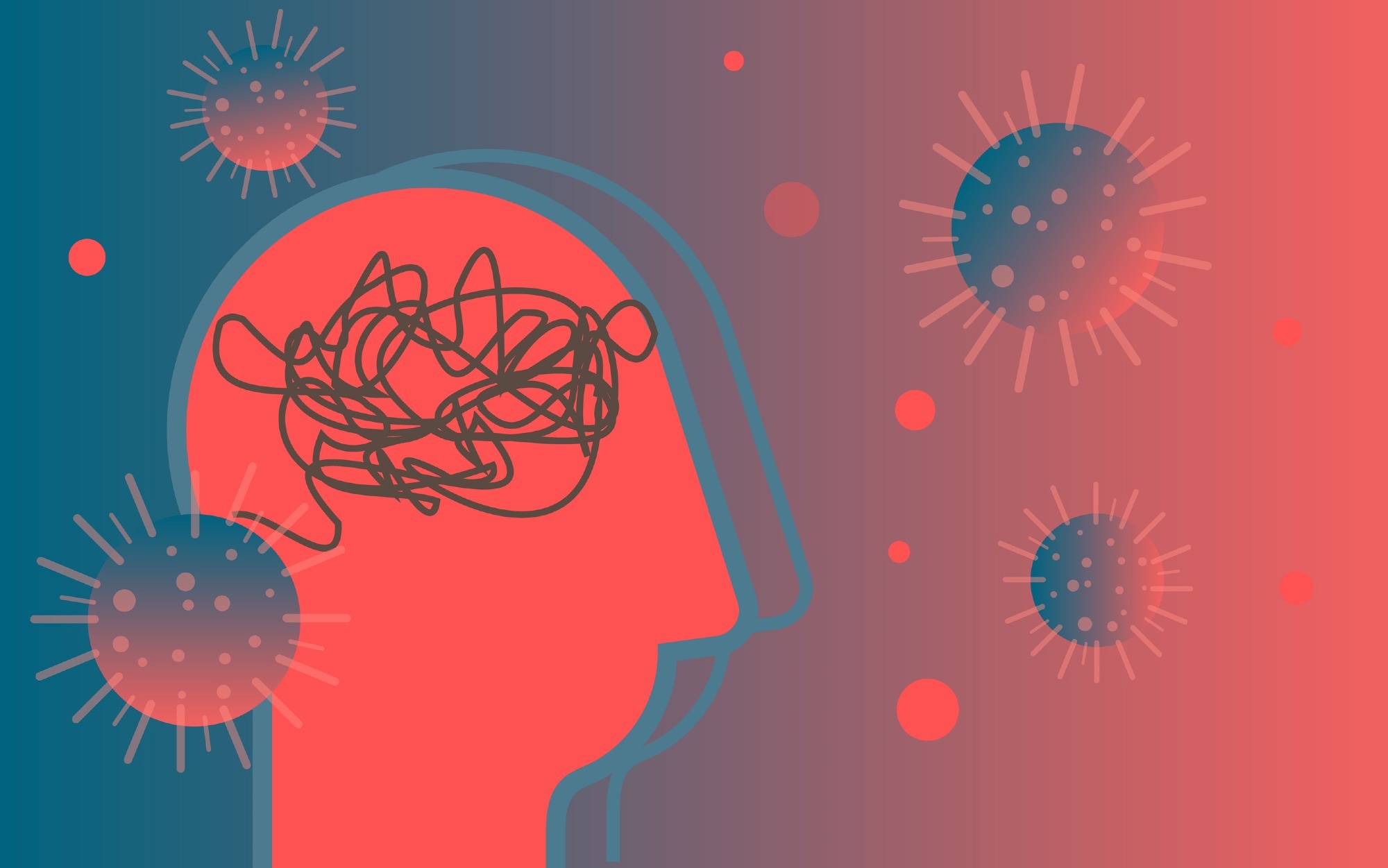
In a recent study published in the journal Nature Human Behaviorresearchers assessed the long-term psychiatric effects and the role of vaccination on the mental health of survivors of coronavirus disease 2019 (COVID-19) using data from the United Kingdom (UK) Biobank.
 Study: Long-term risk of psychiatric disorder and psychotropic medication prescription following SARS-CoV-2 infection in the UK general population. Image credit: DesignPrax / Shutterstock
Study: Long-term risk of psychiatric disorder and psychotropic medication prescription following SARS-CoV-2 infection in the UK general population. Image credit: DesignPrax / Shutterstock
Background
To date, the global health crisis caused by severe acute respiratory syndrome coronavirus 2 (SARS‑CoV‑2) has resulted in over 774 million cases and 7 million deaths. The virus affects the respiratory system and has significant consequences for metabolic, renal and cardiovascular health during and after infection. Additionally, an increase in neurological and psychiatric disorders has been documented among severe and mild cases of COVID-19. However, existing studies, mainly based on electronic health records (EHR), face limitations due to potential bias and lack of comprehensive data on factors such as vaccination. The effectiveness of vaccination in reducing long-term psychiatric complications remains unclear, highlighting the need for further research to understand the extended mental health impacts of COVID-19 and the protective benefits of vaccination.
About the research
The present study used data from the UK Biobank, with participants providing written informed consent. The UK Biobank recruited over 500,000 individuals aged 40-70 from the UK, collecting extensive baseline data and tracking participants through linkage to health records. Data on SARS-CoV-2 infection came from Public Health England’s microbiological database, while information on psychiatric diagnoses and prescriptions was obtained from health statistics and prescription databases.
Participants were categorized into different groups based on their SARS-CoV-2 infection status and test results. The infection group included those with a positive polymerase chain reaction (PCR) test for SARS-CoV-2, while contemporary controls were individuals with no evidence of infection. A historical control group provided a pre-pandemic comparison, and an additional group included participants who tested negative for SARS-CoV-2. The study focused on psychiatric outcomes, identifying disorders, and prescriptions for psychotropic medications. Mental health outcomes were analyzed both as new incidents and as part of current or recurrent conditions, adjusting for a number of covariates to account for potential confounders.
Statistical analyzes used propensity score weighting and matching to balance baseline characteristics across groups, using Cox proportional hazards regression models to estimate risks and incidence of mental illness. Subgroup analyzes examined the influence of demographic factors and COVID-19-related contextual factors, including vaccination status and testing settings, on psychiatric outcomes. Sensitivity analyzes and the use of positive and negative outcome controls aimed to validate the study design and findings, assessing the reliability of the results and the potential for bias.
Research results
In the study, researchers focused on 26,101 participants who tested positive for SARS-CoV-2, compared with 380,337 contemporary controls and 390,621 historical controls. The study tracked the frequency of psychiatric diagnoses and use of psychotropic medications over an average follow-up period of about a year. Initial analyzes revealed significant demographic and health differences between the COVID-19 group and contemporary controls, which were later balanced using weighting techniques to ensure accurate comparisons.
The study’s findings were alarming, showing an increased risk of various psychiatric disorders among COVID-19 survivors, including psychotic disorders, mood disorders, and anxiety, with notable increases in prescriptions for antipsychotics, antidepressants, benzodiazepines, mood stabilizers, and opioids. In particular, mood disorders such as depressive episodes and anxiety disorders such as panic disorder, generalized anxiety disorder, and post-traumatic stress disorder are more common among those who have contracted COVID-19. Substance use disorders showed a slight increase, with a specific rise in alcohol use disorders, while the risk of sleep disorders also increased.
These trends persisted in several subgroup analyses, confirming the consistency of increased risk of psychiatric outcomes across different demographic segments. Delving into the details of infection settings and vaccination statuses, the study highlights a complex picture in which non-breakthrough infections (those occurring in unvaccinated or partially vaccinated individuals) pose a higher risk for both new and recurrent problems with mental health. Interestingly, breakthrough infections did not significantly alter the risk profile for psychiatric diagnoses, although they did correlate with an increased likelihood of being prescribed psychotropic medication.
Additional comparisons with a historical control group reinforced the study’s initial findings, demonstrating a broad increase in mental health risks among COVID-19 survivors. However, when the infected cohort was matched with a test-negative control group, the results became more nuanced, with no significant differences in risk for psychotropic prescriptions, hinting at the complex interplay between COVID-19, mental health, and health care behaviors.
The study’s robust methodology extended to the application of positive and negative outcome controls, validating its findings against known symptoms of persistent COVID-19 such as fatigue and dyspnea, and ensuring that no significant associations were found with unrelated health outcomes such as skin neoplasms and follicular cysts . Sensitivity analyzes further strengthened the primary findings, demonstrating the increased risk of psychiatric disorders in COVID-19 survivors, particularly those diagnosed in a hospital setting, and highlighted the urgent need for targeted mental health interventions for this vulnerable population.
Journal reference:
- Wang, Y., Su, B., Xie, J. et al. Long-term risk of psychiatric disorder and psychotropic medication prescription following SARS-CoV-2 infection in the UK general population. Nat Hum Behav (2024), DOI- 10.1038/s41562-024-01853-4, https://www.nature.com/articles/s41562-024-01853-4
